Homeroom activities
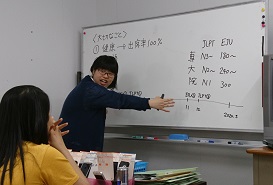
At our school, we are conducting educational activities called "Career Home Room" to realize the course that students want. In this activity, we instruction students searching for the universities of students choice and preparing for the interview. We will do our best to support each person until they pass the exam.
※ The following is an example of activities based on students enrolled in April, but for July and October students, depending on the individual's career desires, we may not do it in the home room but give them guidance on taking it out.
Early April

We will explain the flow and schedule of the year to pass and clarify the goals of each student.
For the beginner level students, each country’s interpreter will be provided to provide guidance.
Early June

We will teach you how to write an application from.
In addition, we will start to consider where to go to school according to future goals.
Late June

We will consider where to go to school according to your future goals.
July

Participating in the joint admissions briefing session, listening directly to the university, etc., and actively visiting at the open campus to determine the desired destinations from the 1st to 3rd choices.
Early august

Students learn the basics of interview behavior, etiquette, and how to answer.
Mid august

We will prepare an interview according to university of each student’s choice.
Late august

We will teach students how to write a statement of reason for aspiration. Students will begin to write a statement of reason according to the school of their choice.
Early September~

We will correct and guide the reason for aspiration and complete it. In addition, we will start interview practice.
After that, we will provide individual guidance according to the student's desired school until passing, such as application preparation and interview practice.
After that, application preparation, interview practice until passing
We will provide individual guidance according to the student's desired school until passing, such as application preparation and interview practice.
Guidance for graduate school

In addition to teaching in class, through learning guidance and individual consultation, we will aim to pass things such as career / desired destinations, how to write reasons for aspirations and research plans, contact with professors, learning methods for entrance exams, etc. we will give students detailed advice.
An example of the schedule is shown below.
April ~
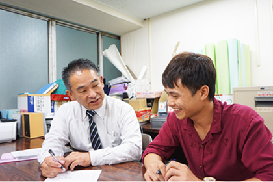
・ Consult with teachers and think about research themes
・ Collect examination information
・ Consult with teachers and think about desired school (where it matches your research theme)
・ Consult with teachers and think about esearch themes
・ Attend an academic counseling session (may meet a professor)
・ Can apply to some graduate schools at this time (Waseda, Keio, etc.)
・ Contact a graduate school professor
・ TOFEL / TOEIC test
May ~
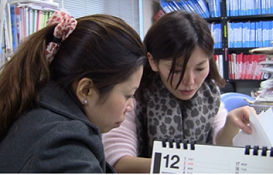
・ Making a research plan, studying specialties and languages (Japanese, English)
・ Collecting documents for application
・ Apply (Some universities apply early, especially in science)
・ Practice of past questions and interviews
July- March (next year)
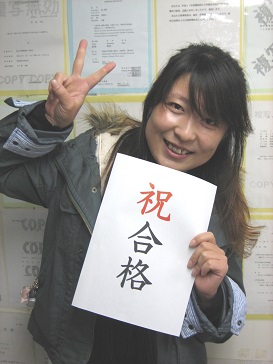
・ Examination, result announcement, admission procedure
・ Visa change procedure
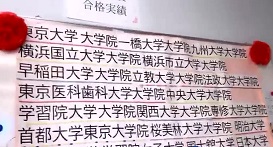
Achievements in the last two years
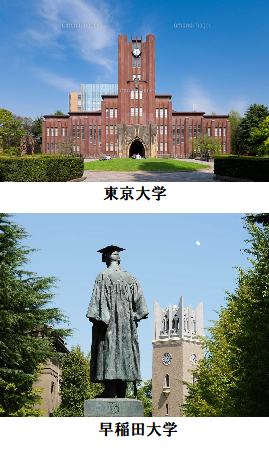
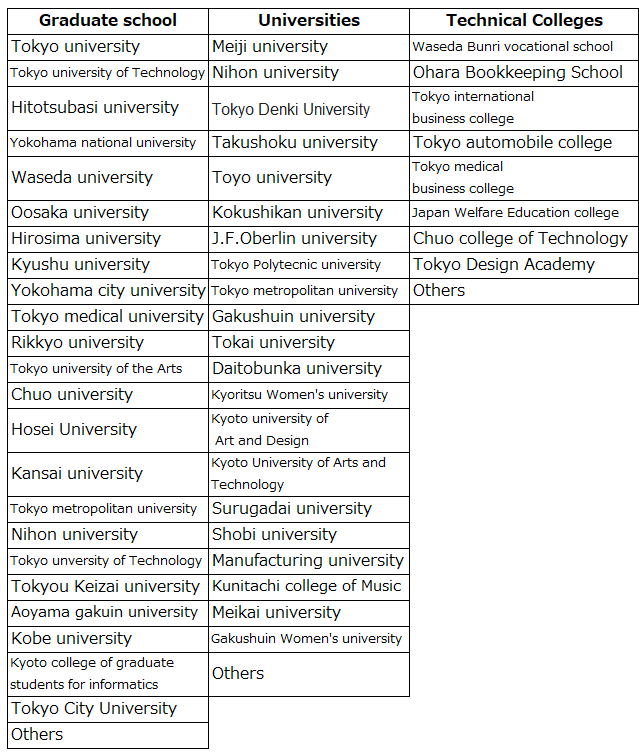
EJU countermeasure course
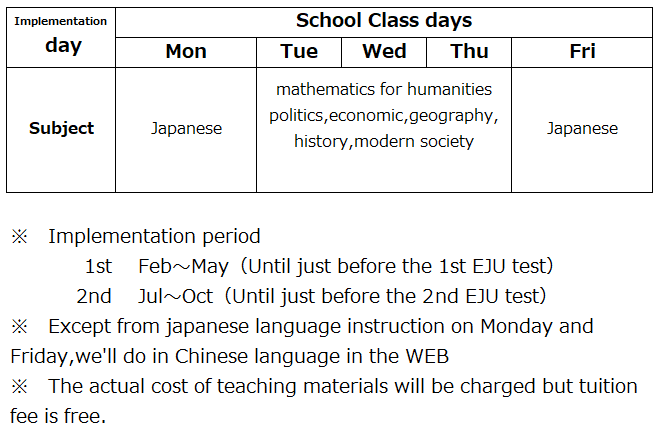
Welfare college to learn for free
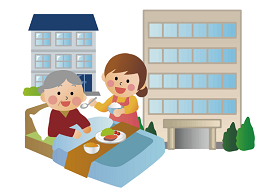
There is a system where students of An Language School can study for free if they want to go to a welfare-related vocational school.
There is a mechanism to learn for free if the following conditions are met.
In the past, many students went to Japan Welfare Education College using this system.
Condition 1
Should work in welfare and long-term care Work part-time at a charity association and determine your aptitude as a profession
Condition 2
Has Japanese ability of about N3
Condition 3
Should pass the entrance examination of Japan Welfare Education College
Those who meet conditions 1, 2, and 3
While enrolled in the Japan Welfare Education Vocational School, you must work part-time work at a collaborative facility (charity association) (hourly wages of 1,050 yen ~ 1,350 yen), and after graduating from the vocational school, you must work at the collaborative facility (charity association) for 5 years. Exemption from vocational school tuition of 1.5 million yen and living expenses loan (applicant) of 600,000 yen
